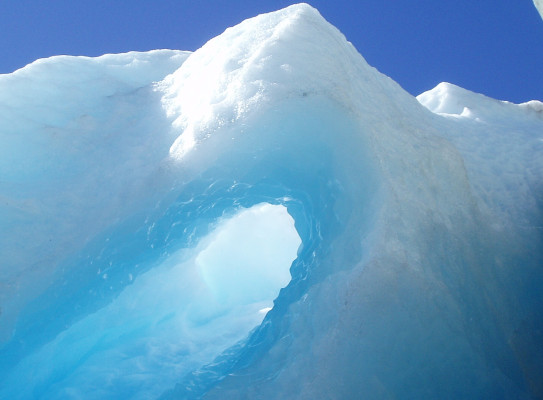
National Modelling Hub

The Hub brings together a diverse set of numerical modelling experts in New Zealand to provide updated future projections and address urgent climate change questions based on changes happening in Antarctica.
Overview
The Antarctic Science Platform National Modelling Hub enhances New Zealand’s modelling capability in support of better predictions of the impact of changes in Antarctica on our oceans and atmosphere.
Built on long-standing partnerships between NIWA, Victoria University of Wellington (VUW) and GNS Science, the Hub is physically located at VUW’s Antarctic Research Centre and supports four modelling fellows. They’re connected with researchers throughout the Antarctic Science Platform. They’re also part of national and international collaborations, including New Zealand’s Deep South National Science Challenge and NZ SeaRise.
They’re addressing key questions around better predicting the future contribution of Antarctic meltwater to sea level rise, changes in ocean uptake of heat and CO2, changes in ocean currents, sea ice extent, nutrient fluxes, ecosystem dynamics and impacts.
This project aims to
- understand how the Antarctic ice sheet, ocean and atmosphere interact
- understand how ecosystems will respond to climate change and affect global carbon budgets
To achieve these objectives, the modelling hub will
- use state-of-the-art computer simulations to investigate the behaviour and interactions between different parts of the earth system
- validate regional models using datasets produced by the Platform
- produce projections of Antarctica and the Southern Ocean under 2°C of warming
- add national capability in numerical modelling and scientific computing
The Project
It’s one of the big questions we need to answer about climate change: how will it affect Antarctica? And then – what are the consequences of Antarctic change on the earth?
The Ross Sea region is home to the planet’s largest ice shelf. It’s fed by both East and West Antarctic ice sheets and is critical to their stability. How much our sea levels rise will depend on their response to atmosphere and ocean warming. This is particularly critical for the West Antarctic Ice Sheet.
The Ross Ice Shelf super cools surface ocean waters, producing sea ice and cold salty dense Antarctic bottom water critical for circulating heat through the global ocean. The circulation of the Southern Ocean also helps to sustain global marine productivity, returning nutrient-rich deep water to the surface and exporting nutrients to lower latitudes. The Southern Ocean takes up more anthropogenic heat and carbon than the oceans at other latitudes, helping to slow the pace of atmospheric warming, while accelerating melting of the West Antarctic Ice Sheet.
With this remarkable influence on sea level, climate, and marine ecosystems, any change in the Ross Sea region will have widespread consequences for the earth and humanity.
The Modelling Hub
The Hub is a new approach that brings together some of the brightest minds and leading experts in diverse fields to accelerate progress in numerical modelling and future projections.
Hub research fellows are working in four key areas.
- Regional climate: Simulating the near-surface climate is fundamental to future projections of Antarctic environments. This work will provide inputs to ice sheet and ocean models, terrestrial geo-statistical models, glacial surface energy balance models and terrestrial hydrological routing models.
- Process-scale ice shelf cavity: Ocean processes drive significant changes in ice shelf evolution over hourly (tidal) to decadal or longer timescales. This project uses simulations of ice-ocean interactions at ice shelf cavity scales to help us understand these processes which are fundamental in making accurate future projections.
- Biogeochemistry: This project focusses on carbon cycle and biogeochemical modelling at the regional scale under past and present conditions, as well as those anticipated for the future. It emphasises specific species and processes relevant to high-latitude Southern Ocean ecosystems.
- Data Science: Much of the observational and numerical simulation work done through the Antarctic Science Platform as a whole will generate large datasets. This project provides a data-driven, multidisciplinary perspective on the data generated from the platform, utilising statistical approaches such as Bayesian networks, statistical emulation, and machine learning to gain additional insights from the data.

Research programme details
Collaborators: NIWA, Antarctic Research Centre at Victoria University of Wellington, Antarctic Science Platform (Antarctica NZ)
Duration
2019–2025
Funding platform
Ministry of Business, Innovation and Employment (MBIE)
Status
Current
Leaders
Dr Liz Keller, GNS, Co-Chair of the Hub and Future Projections Expert Group
Associate Professor Nick Golledge, VUW, Co-Chair of the Hub and Future Projections Expert Group
Funder
NZ$49 million from MBIE for all four Antarctic projects